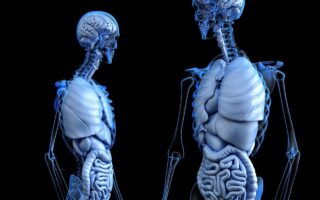Today I will talk about The Essential Role of Supplements in Women’s Health During Menopause.
Menopause is a significant phase in a woman’s life that marks the end of her reproductive years. It is a natural biological process that typically occurs between the ages of 45 and 55. During this transitional phase, a woman’s body undergoes various hormonal changes, leading to a range of physical and emotional symptoms. The importance of supplements in supporting women’s health during menopause cannot be overstated. In this article, we will explore why supplements are crucial during this phase, the risks associated with non-supplementation, and how these supplements can play a pivotal role in women’s well-being.
Understanding Menopause and Its Impact
Hormonal Imbalances and Menopause Symptoms (H1)
Menopause is characterized by a decline in estrogen and progesterone levels, resulting in a series of symptoms such as hot flashes, night sweats, mood swings, weight gain, and bone density loss. These changes can significantly affect a woman’s quality of life and overall health.
The Role of Supplements in Menopausal Health
Importance of Nutritional Support (H2)
A balanced diet is fundamental to health at any stage of life, but it becomes even more critical during menopause. Nutrient deficiencies can exacerbate menopausal symptoms and increase the risk of various health issues. Supplements can bridge the gap between dietary intake and the body’s requirements.
Key Supplements for Menopausal Women (H2)
- Calcium and Vitamin D: Essential for maintaining bone health and reducing the risk of osteoporosis, a common concern during and after menopause.
- Omega-3 Fatty Acids: Known for their anti-inflammatory properties, omega-3s can help alleviate joint pain and reduce the risk of heart disease.
- Vitamin B12: Vital for energy production and cognitive function, as its absorption may decrease with age.
- Magnesium: Helps regulate mood, alleviate muscle cramps, and support sleep quality.
The Risks of Non-Supplementation
Potential Consequences of Neglecting Supplements (H2)
Failing to address nutritional gaps during menopause can have serious consequences. Without adequate nutrients, women may experience increased bone fragility, cognitive decline, and heightened susceptibility to infections.
Impact on Heart Health (H3)
A lack of proper supplementation can negatively impact cardiovascular health, increasing the risk of hypertension, heart disease, and stroke. Omega-3 fatty acids, for instance, play a crucial role in maintaining heart health and preventing these conditions.
Empowering Women Through Supplementation
Alleviating Menopausal Symptoms (H2)
Supplements can significantly alleviate menopausal symptoms, allowing women to navigate this phase with greater ease and comfort. By addressing hormone imbalances and nutritional deficiencies, women can experience reduced hot flashes, improved mood stability, and enhanced overall well-being.
Strengthening Bone Health (H2)
Menopause often leads to a decline in bone density and an increased risk of fractures. Calcium and vitamin D supplements work in tandem to maintain bone strength and minimize the risk of osteoporosis.
The Importance of Pre-Menopausal Supplementation
Building a Foundation for Menopause (H2)
The journey through menopause can be smoother when women focus on their health before its onset. Pre-menopausal supplementation can establish a solid foundation by ensuring adequate nutrient levels and reducing the severity of symptoms when menopause eventually arrives.
Conclusion
Navigating menopause is a transformative experience for women, both physically and emotionally. The significance of supplements in supporting women’s health during menopause cannot be understated. Proper supplementation can help alleviate symptoms, reduce the risk of associated health complications, and empower women to embrace this new phase of life with vitality and confidence.
Thank you for being here.

Penha Cristina Mullett
Brazilian Holistic Therapist
AADP Member
IPHM Member
Personal Trainer & Nutrition Coach Certificate
FAQs About Menopause and Supplements
- Are supplements a replacement for a healthy diet? Supplements should complement a balanced diet, not replace it. A wholesome diet remains essential for overall well-being.
- Can menopause be entirely symptom-free with supplements? While supplements can alleviate symptoms, individual experiences may vary. Consultation with a healthcare professional is recommended.
- At what age should women consider pre-menopausal supplementation? Women in their late 30s and early 40s can benefit from pre-menopausal supplementation to prepare their bodies for the changes ahead.
- Are there any potential side effects of menopausal supplements? When taken as directed, supplements are generally safe. However, it’s wise to discuss supplementation with a healthcare provider, especially if you have existing medical conditions.
- How long should women continue taking supplements after menopause? The need for supplements post-menopause depends on individual health goals and nutritional requirements. Consulting a healthcare professional can provide personalized guidance.



